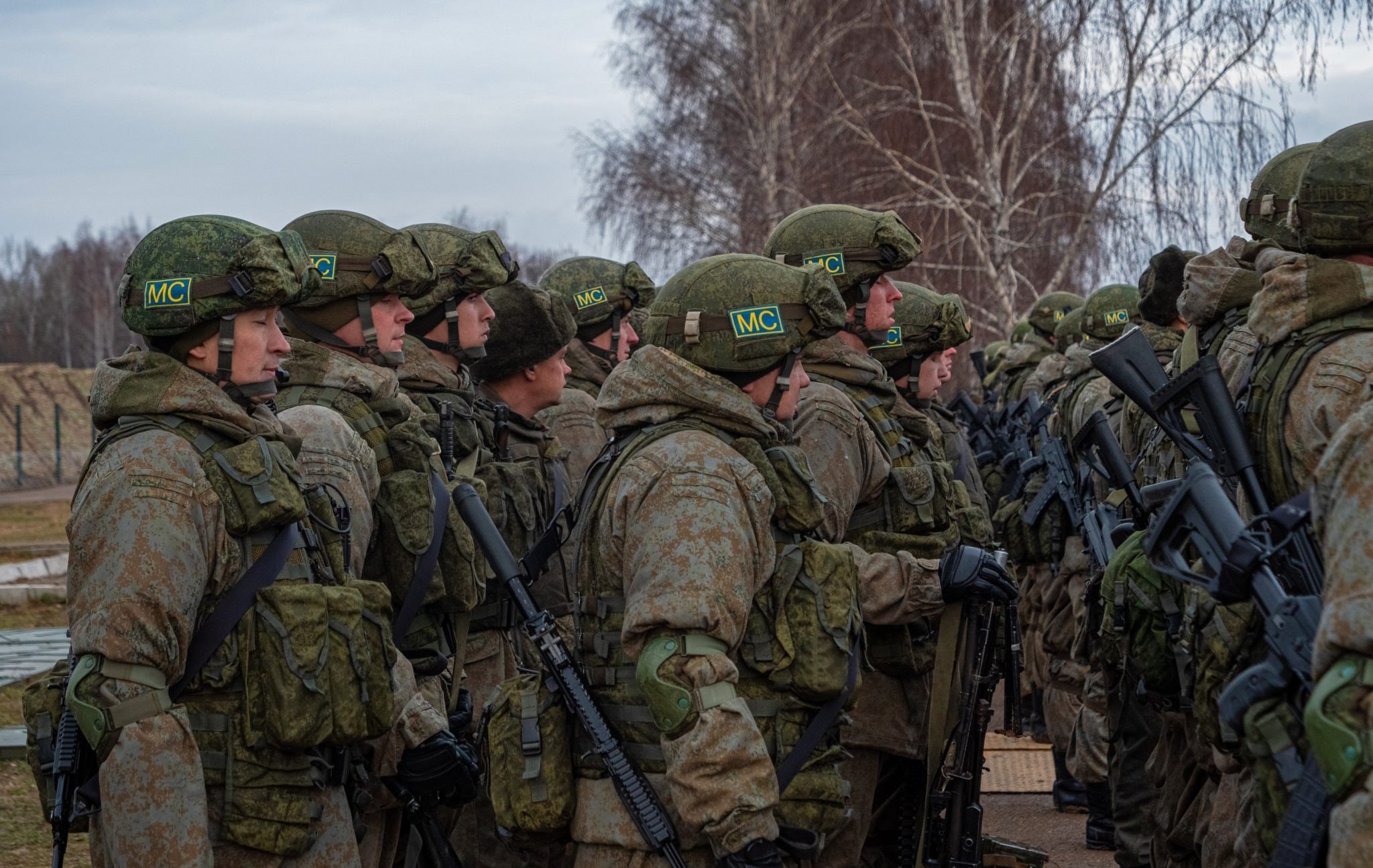Those Are Russian Mothers’ Sons

“Our ancestors have bred pugnacity into our bone and marrow, and thousands of years of peace won’t breed it out of us,” William James wrote in his 1910 essay “The Moral Equivalent of War.” “The popular imagination fairly fattens on the thought of wars.”
James’s point is borne out in the vitriol currently directed at Russia. Simplistic media narratives leave no room for recognizing that destroyed Russian military vehicles contain dead Russian sons, brothers, and fathers. After so many wars of our own here in the West, you might have hoped the shared humanity of our enemies would be established by now. The evidence suggests otherwise.
On Twitter today, I feel I might as well be back in Afghanistan in 2009 watching remote feeds of bomb drops and A-10 gun runs on the Taliban. Social and television media are awash with videos of Russian tanks and AFVs being destroyed. There are regular posts of the latest daily tally of Russian equipment losses—a weird inversion of those daily Covid-19 death tallies. People cheer Ukrainian multiple-launch rocket systems launching barrages on Russian positions and Javelin anti-tank missiles in action amid a general sense of gleeful bloodlust.
The lack of appreciation for the quandary of ordinary Russian soldiers is lamentable. These are young men in their late teens and early twenties who appear entirely expendable to their officers and leaders as they face astonishing fatigue and fear in a war many may well not believe in. The Russian top brass are not the only ones being callous toward their soldiers, judging by the content of Western media and public debate.
In case you think I am being too soft here on the Russians, I note the points recently made by Gregory S. Newbold, a retired Marine Corps lieutenant general, in a recent essay for Task & Purpose that addresses what he calls “a form of dementia” prevailing among many politicians and generals over what sets the military apart, as they forget the preeminent importance of lethality. He writes:
“To be true to its purpose, the U.S. military cannot be a mirror image of the society it serves. Values that are admirable in civilian society — sensitivity, individuality, compassion, and tolerance for the less capable — are often antithetical to the traits that deter a potential enemy and win the wars that must be fought: Conformity, discipline, unity.”
And the inverse of this is the key point here: Society is not elevating those values it is meant to, counterbalancing those antithetical traits required by the military’s commitment to lethality. And society must do that because once the dogs of war are unleashed, all you have to counterbalance those terrible powerful forces is the body politic, and civil society’s appetite for the resulting slaughter.
In theory, society’s reluctance to pay in blood should only permit what is necessary, and thereby end conflict as soon as possible. But that didn’t happen in Vietnam for nearly a decade, or in Afghanistan and Iraq across 20 years. A major factor in those three wars rumbling on—the latter two especially—was that the vast majority of society could physically avoid, while some even profited from, the course of those wars.
Today, social media and the internet blitzkrieg of news means that people can remain entirely removed from the war in Ukraine while also deeply involved in it. It does not appear a good combination. The sudden preponderance of deskbound military pundits and cheerleaders would do well to remember advice offered across the ages, from the Chinese military strategist Sun Tzu to U.S. defense secretary Robert McNamara post-Vietnam: Know and empathize with your enemy. We failed to do that in Afghanistan and Iraq. That contributed to strategic defeat and enormous losses in blood and treasure for everyone involved.
Yes, Russia invaded, and Ukraine has to defend itself, necessitating killing young Russian soldiers. But as previous articles at The American Conservative have noted, this is more complicated than Putin being out of his mind. And the more we “other” and dehumanize the opposition, lumping 150,000 individual souls all under the collective and simplistically evil identity of Putin, the less chance we have of rationally approaching the challenges and seeing beyond our prejudices, fears, and biases to find a solution.
“Western elites must label Putin irrational because they are committed to the idea it is not really possible to be intelligent, rational or logical and disagree with them,” as Stephen Wigmore argues for the Critic.
Our self-defeating myopic view of Putin and the young Russian soldiers he is sending to war is just how we viewed the Taliban as an organization and as individuals. It’s astonishing, given the two wars are basically back to back. Yet, somehow, we continue to miss the obvious, and so just keep repeating the same bad habits, corroding our civic virtues and thereby our ability to check our base and reckless impulses abroad.
Current estimates of Russian fatalities in Ukraine range from 2,000 to much higher. Ukraine has done what it has to do to defend itself and its people. It is far less clear whether the West did what it should have done before conflict broke out, or if it is doing what it should do now to help end the bloodshed. The baying and platitudinous mob isn’t helping with its trenchant and unreflective calls for no-fly zones, more arms sent to Ukraine, and boycotts of anything Russian—including, apparently, Russian soldiers’ shared humanity.
James Jeffrey is a freelance journalist and writer who splits his time between the US, the UK, and further afield, and writes for various international media. Follow him on Twitter: @jrfjeffrey and at his website: www.jamesjeffreyjournalism.com.
Comments